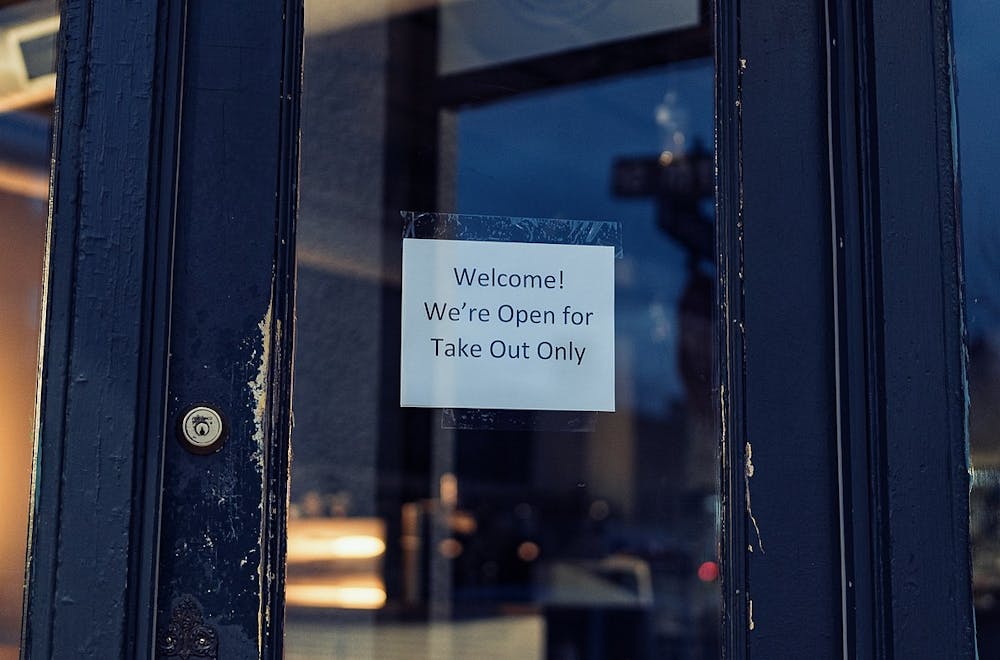Fourth years at the University are mourning the loss of both final exercises and the last few weeks of our undergraduate career on Grounds. But beyond “enjoying” our last semester of college via Zoom, we have to face the reality that our generation’s careers may permanently be stunted by an unfavorable job market. The economic fallout of the coronavirus obviously isn’t limited to college seniors scrambling to find jobs, however. Most Americans have been forced to undergo the transition to social distancing, telework and toilet paper shortages. And as the death toll continues to rise, politicians continue to close borders and industries as a band-aid solution to the pandemic.
Progressives balk at the idea of letting small businesses run as usual in response to COVID-19, arguing that American workers — and young people especially — have to sacrifice working in the office for the sake of those who are at higher risk of experiencing symptoms. While it’s true that many professions — like journalism and software engineering — can easily be performed in a telework environment, not all careers have the luxury of transitioning into a home office. Despite this striking reality, many elected officials are instituting draconian measures at breakneck speed.
California, Illinois and New York, among other states, have ordered state lockdowns. San Francisco and neighboring counties have barred residents from leaving their homes “except for essential goods,” the violation of which constitutes a misdemeanor. Pennsylvania Gov. Tom Wolf ordered all “non-life-sustaining businesses” to close up shop Thursday. Governor Cuomo ordered the mandatory closure of all nonessential businesses in New York, condescendingly telling state residents, “This is not life as usual. Accept it, realize it and deal with it.” Though instituted in the name of public safety, it’s quite bold for elected officials to label certain careers as non-life-sustaining and nonessential considering Americans rely on these jobs to feed their families. Not to mention the fact that low-wage laborers are going to be hit the hardest by these measures.
Take a look at the restaurant industry, for example. Home to more than 15 million skilled workers, America’s restaurant industry has already suffered an unimaginable economic toll from the coronavirus. Dining reservations across the country have plummeted to zero in many states, and most brick and mortar restaurants are urging patrons to order takeout and delivery options so they can stay afloat. Many states have instituted mandatory closures of restaurants and bars until further notice.
As The Atlantic’s Derek Thompson explains, “Restaurants in a pandemic are like beachfront properties in a hurricane” — “Their devastation is both a tragedy and an omen of greater havoc to come.” This pandemic’s consequences won’t just affect restaurant owners and employees — hotel staff, flight attendants, travel agents and movie theater employees are next on the list. But this small ripple in the pond won’t stay limited to low-wage workers for long, they’ll quickly spiral into a seismic wave of unemployment that will engulf millions of Americans in a matter of weeks. Treasury Secretary Steve Mnuchin has warned that unemployment could hit 20 percent.
In addition to job loss, however, we need to brace ourselves for the deadweight loss that may ensue if lawmakers don’t change their strategy immediately. As the Hoover Institution’s Russell Roberts warns us, “What we want to avoid — if possible — is ripple effects in production of goods.” He adds, “If it gets to the point where shelves are empty because the warehouse that stocks the toilet paper doesn’t have workers, then we’re at risk of a major economic disruption.”
Many Americans claim that we wouldn’t be in this dire economic situation had the Trump administration enacted preventative measures at an earlier stage of the virus’ progression, and that very well may be true. But we can’t go back in time. We can only look to the future, and that requires acknowledging that shutting down the economy will have consequences that we have yet to fully comprehend.
As the Wall Street Journal’s editorial from Friday says, “This should not become a debate over how many lives to sacrifice against how many lost jobs we can tolerate.” The human death toll from this pandemic is almost incomprehensible and will only get exponentially worse. We must continue social distancing, accelerating regulatory procedures for a vaccine and administering tests to save as many lives as possible.
But at this point, it should be relatively clear to people with a basic understanding of economics that shutting down the economy isn’t a sustainable approach. While churches, academic institutions and some careers can become well-adjusted to the new normal through technology, many industries can’t. Small businesses are going bust, and it’s evident that this trend will only skyrocket in the coming weeks. If elected officials continue closing state borders and shutting down entire industries, Americans must brace themselves for the impending sea of bankruptcies, bailouts and foreclosures that will ensue.
Audrey Fahlberg is an Opinion Columnist for The Cavalier Daily and served as an Opinion Editor for the paper’s 130th term. She can be reached at a.fahlberg@cavalierdaily.com.
The opinions expressed in this column are not necessarily those of The Cavalier Daily. Columns represent the views of the authors alone.







